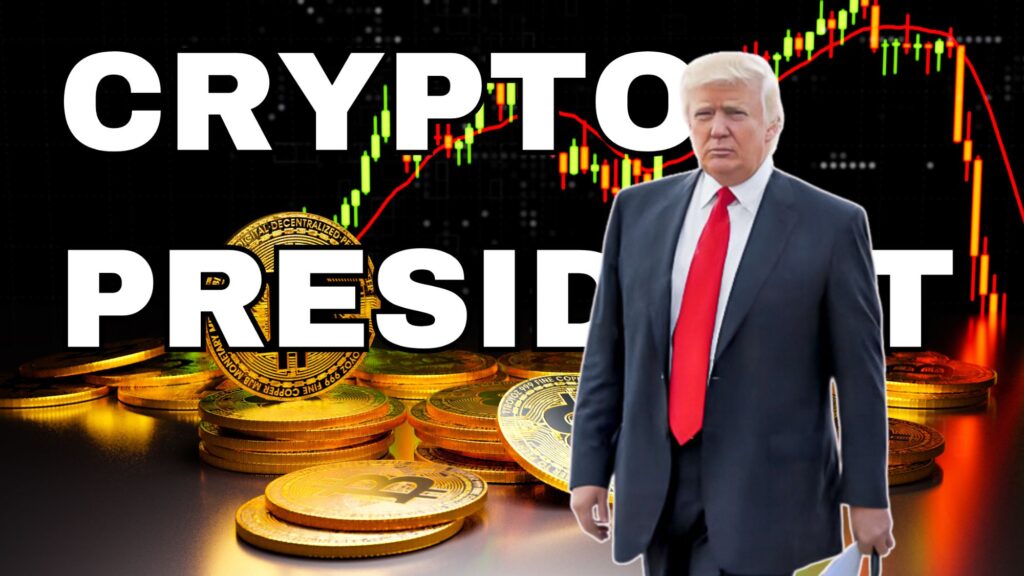
Washington, D.C. — As Donald Trump prepares for his second term as President of the United States, his inauguration on January 20, 2025, is set to blend traditional pomp with a modern twist, focusing heavily on the burgeoning cryptocurrency sector. This event will not only celebrate Trump’s return to the White House but also his proclaimed status as the “first crypto president.”
Tech Leaders at the Forefront
A striking aspect of this inauguration is the involvement of tech industry leaders, underscoring Trump’s campaign promises of fostering innovation within the tech and cryptocurrency spaces.
Among the attendees are CEOs and founders from major tech and crypto firms, signaling a new chapter in the relationship between Silicon Valley and the White House.
“The tech sector sees this as an opportunity to shape policy in an era where digital assets are at the forefront of financial innovation,” explains Dr. Samuel Martinez, a political analyst focusing on technology policy. “Trump’s administration promises to be one where the regulatory environment for crypto could see significant changes.”
The Inaugural “Crypto Ball”
A highlight of the inauguration festivities is the “Crypto Ball,” a first-of-its-kind event specifically tailored to celebrate Trump’s pro-crypto stance. Scheduled for January 17, the ball is organized by BTC Inc. and Stand With Crypto, two entities deeply entrenched in the cryptocurrency community.
Tickets for this exclusive event are priced at a premium of $2,500 each, with the event taking place at the historic Andrew W. Mellon Auditorium in Washington, D.C. The choice of venue and the black-tie dress code suggest an event aiming to merge elegance with the avant-garde world of blockchain technology.
“Hosting a Crypto Ball is a nod to the community that has been advocating for clearer regulations and broader acceptance of digital currencies,” said David Bailey, CEO of BTC Inc. “It’s about recognizing the potential impact of Trump’s policies on our industry.”
Trump’s Crypto Legacy and Future Policy
During his campaign, Trump positioned himself as a champion for cryptocurrency, promising to create a regulatory framework that would encourage growth and innovation in the sector. His intentions include establishing a strategic Bitcoin reserve for the U.S. and a more crypto-friendly SEC under the leadership of Paul Atkins, a known advocate for digital currencies.
“Under Trump’s guidance, we might see a policy shift that could make the U.S. a leading hub for blockchain technology,” commented Jeremy Allaire, CEO of Circle, who confirmed a $1 million donation in USDC tokens to Trump’s inaugural fund.
This donation aligns with others from companies like Ripple, Coinbase, and Kraken, all contributing significantly to the event, showcasing their support for Trump’s crypto vision.
Implications for Crypto Regulation
The involvement of these tech and crypto leaders at the inauguration isn’t just ceremonial. It’s a strategic move to influence or at least understand the forthcoming policy directions.
Trump’s approach to regulation, especially after appointing David Sacks as the AI and Crypto Czar, hints at a more integrated and perhaps less restrictive view on digital assets.
“Expectations are high for regulatory clarity, which has been somewhat elusive under previous administrations,” notes Brad Garlinghouse, CEO of Ripple, who has pledged a substantial donation in XRP to the inauguration. “We’re eager to work with what could be the most pro-crypto administration in U.S. history.”
Conclusion
As Trump steps into his second term, the inauguration’s emphasis on cryptocurrency and technology could mark the beginning of a new era for these sectors in America. With tech leaders at the helm of the celebration, the event not only honors Trump but also sets the stage for a potentially transformative period in U.S. digital policy and innovation.
This blend of tradition with forward-looking policy signals a complex but promising future for cryptocurrency under Trump’s leadership, watched closely by a tech-savvy audience eager for developments that could redefine the digital economy.











 Join our Telegram Channel
Join our Telegram Channel